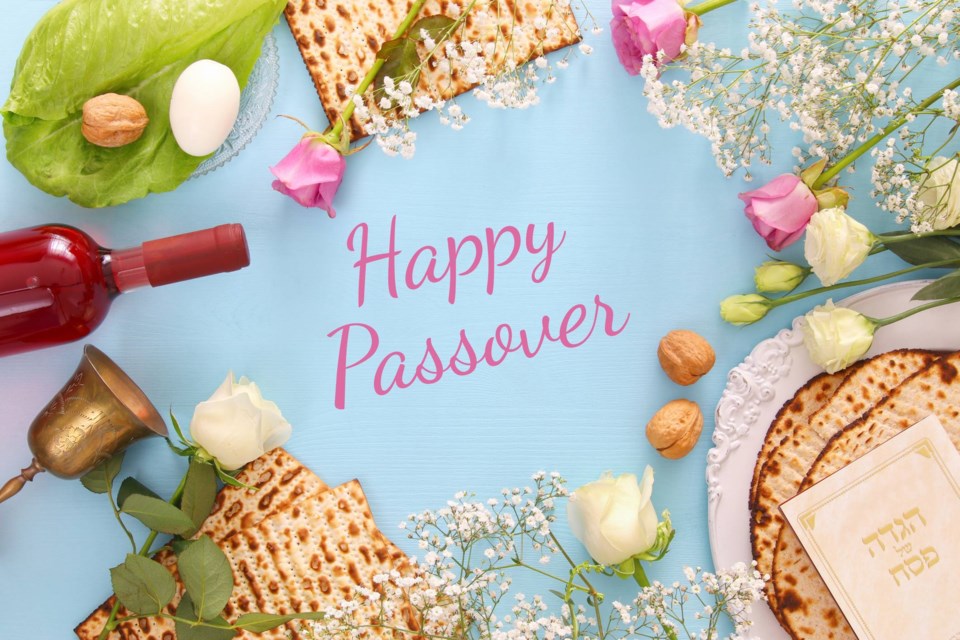As the Jewish communities in Brooklyn prepare for Passover, which starts tonight, BK Reader is exploring the holiday, its origin and traditions.
Passover, a celebration of the struggle for freedom and the triumph of good over evil, is celebrated in the early spring and lasts seven or eight days, depending on the Jewish denomination. This year, the holiday will be celebrated from Monday, April 22, to Tuesday, April 30.
Passover commemorates the Exodus of the Jewish people from slavery in Egypt and their difficult quest for liberation. The holiday is celebrated with one or two symbolic meals called a Seder that recount the story of the Exodus through special foods and rituals.
During the festive Seder, the story of Passover is read. Here's how it goes:
After many decades of slavery to the Egyptian Pharaohs, God saw the Jewish people's distress and sent Moses to Pharaoh with a message: "Send forth my people, so that they may serve me." Despite numerous warnings, Pharaoh refused to heed God's command. So, God sent Egypt plagues, afflicting them and destroying everything from their livestock to their crops.
When that didn't work, God sent down the last of the plagues on the Egyptians, killing their firstborn sons. While doing so, God spared the Jewish children, "passing over" their homes. Pharaoh's resistance was broken, and he virtually chased his former slaves out of the land. The Israelites left so quickly that the bread they baked as provisions for the way did not have time to rise.
Once the Israelites left Egypt, Pharaoh changed his mind and came after them. The Egyptian army caught up to the escapees at the Red Sea, which miraculously split in half to allow the Jewish people through and crashed in on the Egyptian forces.
The Israelites then spent 40 years trekking through the desert, making their way to the holy land. They encountered struggles on the way and received the 10 commandments at Mount Sinai.
Passover is called Pesach in Hebrew which refers to the ancient Passover sacrifice known as the Paschal Lamb. It is also said to refer to the idea that God "passed over" the houses of the Jewish people during the 10th plague on the Egyptians.
The story of the Exodus is a powerful metaphor that is appreciated not only by Jewish people but by people from other communities as well.
The Passover celebration is divided into two parts. The first two days and the last two days are full-fledged holidays. Holiday candles are lit at night, and holiday meals are enjoyed on both nights and days. Observers don't go to work, drive, write or switch on or off electric devices, but they are permitted to cook. The middle four days are semi-festive intermediate days when most forms of work are allowed.
To commemorate the unleavened bread that the Israelites ate when they left Egypt, holiday observers don't eat any Chametz — leavened foods, like bread or cereal — from midday before Passover starts until the conclusion of the holiday.
Ridding the homes of Chametz is an intensive process. It involves a full-out spring-cleaning search-and-destroy mission during the weeks before Passover. It culminates with a kid-friendly, ceremonial search for Chametz on the night before Passover, and then a burning of the last little crumbs on the morning before the holiday. Instead of Chametz, observers eat Matzah — the flat, unleavened bread.
The highlight of Passover is the Seder, observed on each of the first two nights of the holiday. The Seder is a fifteen-step family-oriented tradition and ritual-packed feast.
The focal points of the Seder are:
- Eating Matzah
- Eating bitter herbs to commemorate the bitter slavery endured by the Israelites
- Drinking four cups of wine — a royal drink to celebrate the newfound freedom
- The recitation of the Haggadah, a book that describes in detail the story of the Exodus.
Pesach Sameach, Brooklyn!




